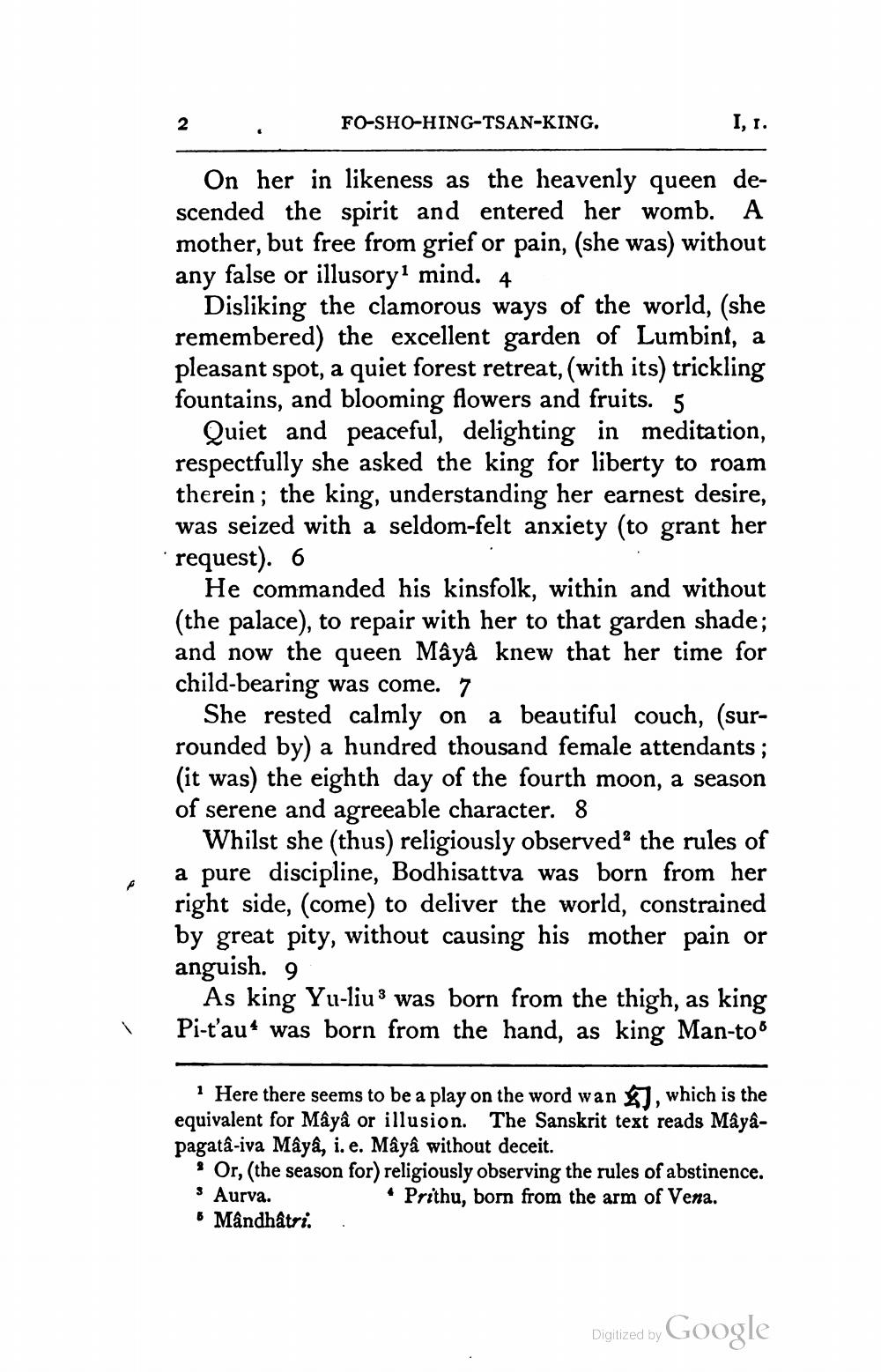________________
FO-SHO-HING-TSAN-KING.
1, 1.
On her in likeness as the heavenly queen descended the spirit and entered her womb. A mother, but free from grief or pain, (she was) without any false or illusory' mind. 4
Disliking the clamorous ways of the world, (she remembered) the excellent garden of Lumbini, a pleasant spot, a quiet forest retreat, (with its) trickling fountains, and blooming flowers and fruits. 5
Quiet and peaceful, delighting in meditation, respectfully she asked the king for liberty to roam therein ; the king, understanding her earnest desire, was seized with a seldom-felt anxiety (to grant her request). 6
He commanded his kinsfolk, within and without (the palace), to repair with her to that garden shade; and now the queen Mâyâ knew that her time for child-bearing was come. 7
She rested calmly on a beautiful couch, (surrounded by) a hundred thousand female attendants; (it was) the eighth day of the fourth moon, a season of serene and agreeable character. 8
Whilst she (thus) religiously observed the rules of a pure discipline, Bodhisattva was born from her right side, (come) to deliver the world, constrained by great pity, without causing his mother pain or anguish. 9
As king Yu-liu 3 was born from the thigh, as king Pi-t'au* was born from the hand, as king Man-to
· Here there seems to be a play on the word wan ], which is the equivalent for Mâyâ or illusion. The Sanskrit text reads Mâyâpagatâ-iva Mâyâ, i.e. Mâyâ without deceit.
. Or, (the season for) religiously observing the rules of abstinence. $ Aurva.
• Prithu, born from the arm of Vena. 6 Mândhâtri. .
Digitized by Google




